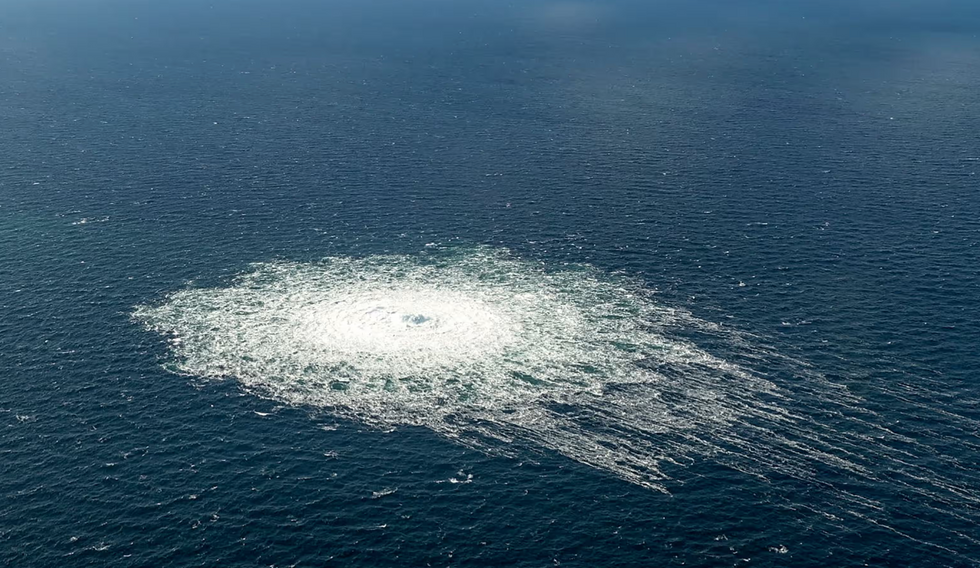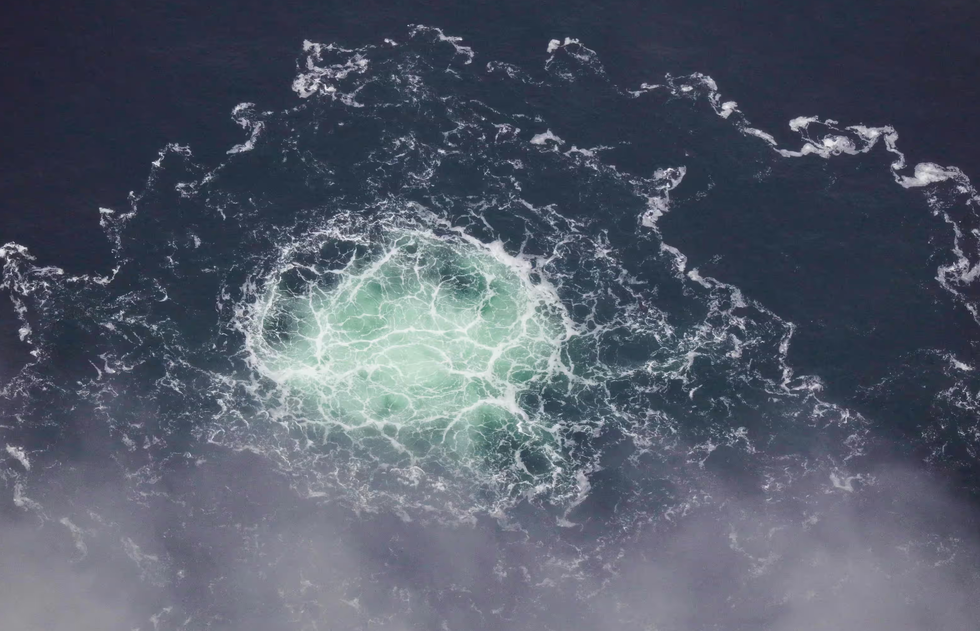Britain is “vulnerable” to an attack that “no one is keeping an eye on”, a top defence chief has warned.
Air Vice-Marshal Sean Bell’s chilling assessment comes as all eyes focus on Ukraine, where Vladimir Putin’s forces are gaining ground to the east.
Although the threat posed by Russia is most immediate in Ukraine, Britain has a weak spot that Putin could easily exploit to devastating effect, Bell warns.
“Something which has caused a lot of concern for some time is the vulnerability of our undersea pipelines, data and power cables,” he told GB News.

The Nord Stream led to a blame game that still hasn’t been resolved
SWEDISH COAST GUARD/AFP/Getty Images
As he explains, Britain is “heavily reliant” on these undersea cables to provide some of that capability.
Indeed, these cables carry more than 99 per cent of the world’s data traffic, facilitating everything from financial transactions to personal Internet usage. They are indispensable for the UK’s financial sector, which handles $10trillion (£7trillion) in daily financial transfers.
The UK imports a significant portion of its energy through undersea infrastructure. This includes 15 per cent of its electricity via undersea interconnector cables from the continent and 40 per cent of its gas through pipelines from Norway. These connections are essential for maintaining energy supply and stability.
An attack on this underwater infrastructure would likely cause immediate and severe disruptions. For instance, damaging undersea cables could severely interrupt internet and financial transactions, leading to economic turmoil. An attack on energy pipelines could result in power shortages, especially if multiple pipelines or interconnectors are targeted simultaneously.
This seabed infrastructure is “vulnerable because nobody’s keeping an eye on them”, warns Bell.
Finding ways to protect it should therefore be a top priority. However, research papers examining this chink in Britain’s armour are worryingly scarce.
One of the last detailed reports came via none other than Rishi Sunak, who highlighted the critical role and vulnerabilities of the global undersea cable network, before becoming Prime Minister, in a report titled “Undersea Cables: Indispensable, insecure”.
The threat has become more salient since then.
The Nord Stream pipeline explosions, which occurred on September 26, 2022 – the year Russia invaded Ukraine – concentrated minds.
The explosions took place near the Danish island of Bornholm, affecting both the Nord Stream 1 and Nord Stream 2 pipelines, which were designed to carry natural gas across to Germany across the Baltic Sea.
Following the incident, a blame game got underway, with Ukraine blaming Russia and vice versa.
Multiple countries, including Sweden, Denmark, and Germany, launched investigations into the incident. Sweden has since dropped its investigation, transferring evidence to Germany. The perpetrators remain unknown.
LATEST MEMBERSHIP DEVELOPMENTS

Following the Nord Stream sabotage, a blame game got underway, with Ukraine blaming Russia and vice versa
SWEDISH COAST GUARD/AFP/Getty Images
Last month, history repeated itself. Two data cables in the Baltic Sea were damaged, with European officials suspecting malicious intent by a hostile actor. Multiple investigations are underway to identify the perpetrator.
As Bell points out, all this uncertainty suits Russia just fine.
“If you have a subsurface capability that the West suddenly sees Russia or other nations undermining, it just creates another distraction,” he told GB News.
Putin wants to leave Britain guessing about how or whether it would even attack Britain’s seabed infrastructure, Bell explains.
It’s a game of psychological warfare that’s designed to make Britain “introspective” while Russia outmanoeuvres her, he added.